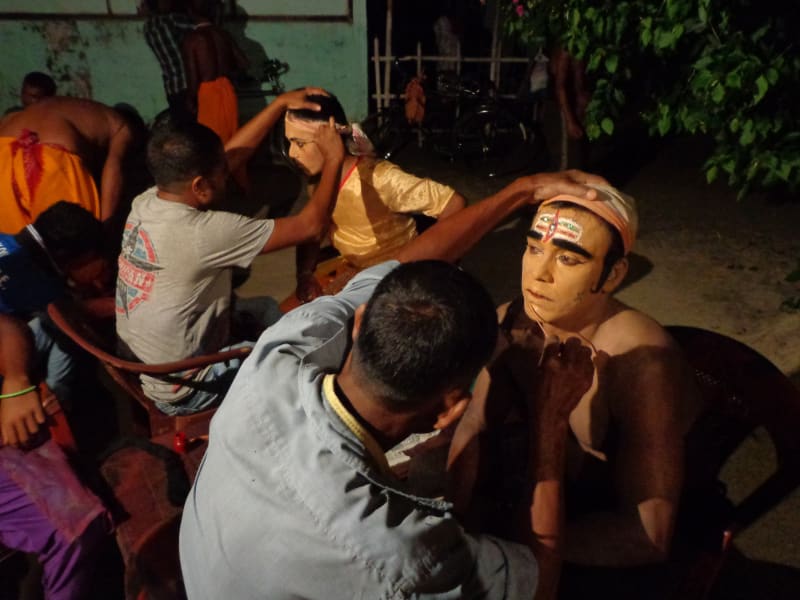Mrinalini Mukherjee Creative Arts Grant 2024-25
We are delighted to announce that the recipient of the
Mrinalini Mukherjee Creative Arts Grant 2024-2025 is
Bhaskar Hazarika
for his project
অনুবাদ, Anubaad means Translation:An Interdisciplinary Art Project for Intercultural Dialogue among Marginalized Identities
On the jury this year were Belinder Dhanoa, Manisha Parekh and Jeebesh Bagchi, who were looking for projects that were “free from derivation, (had) a sense of inventive-ness and original thinking, artistic ambition and, importantly, projects that take an exploratory or critical stance in relation to the culture at large.” Following an open call for proposals, there were two rounds of shortlisting and a final round of interview, from which they selected Hazarika’s proposal.
Hazarika’s project will explore identity construction within intercultural spaces where diverse linguistic, cultural, and ethnic communities interact. It will examine how différance manifests in these spaces and employs art to challenge essentialist views of identity through dynamic and inclusive representations. The project will utilize translation as a strategy and method for fostering dialogue, negotiation, and exchange between different communities.
The project looks to translate vernacular literature, theatre, and performance arts across marginalized communities, whilst engaging with Adivasis, Dalits, linguistic minorities, LGBTQ+ communities, laborers, and displaced groups. Structured into four four-month sessions, the project will span multiple locations across West Bengal and Assam to foster intercultural exchange and community engagement. Using writing, reading, performance, and image-making, he will explore translations from/between Assamese, Santhali, Bengali, and other languages.
Jury’s statements -
“The arts have long been a way to communicate beliefs, and express ideas about the human experience; to be among the voices and memories of all societies. Art is one of the important resources for broadening our experiences beyond events in our surroundings. Bhaskar Hazarika’s proposed project has the potential to contribute to this role of art. Through its archival, translation, performance, community collaboration, and interdisciplinary engagement, I believe the project could enable an expression of perceptions of the past, present existences, events, feelings, ideas and thoughts about identity, learnings and beliefs as they shift in time and space.“ - Belinder Dhanoa
“Bhaskar Hazarika’s proposal evokes various densities of languages, both minor and major, and their porous inter-movement. The art of translation is the mediating field through which these movements and other performative forms will jostle and migrate. The rigour, eccentricities and between-ness proposed with diverse practitioners is unique and challenging.” - Jeebesh Bagchi
“Bhaskar Hazarika's proposal stood out for his understanding of his origins and how he plans to incorporate his identity and cultural heritage into his work through performances, workshops, and exhibitions. His research with other artists and performers will bring-in important conversations through a well-structured program. I believe Bhaskar will include many other creative practitioners along on this journey of self-exploration through interaction and dialogue. “ - Manisha Parekh
Photo credit: Bhaskar Hazarika
ABOUT THE GRANT
The Mrinalini Mukherjee Creative Arts Grant is an annual visual arts grant aimed at supporting the work of an Indian artist/collective who has shown consistent engagement with shifting contexts within contemporary art, and is looking to experiment and push their practice beyond the familiar. The grant will enable them to explore fresh ideas and develop a new body of work, and continue contributing to the field of visual arts with greater creative, technical and intellectual proficiency.
The grant recognizes the need for artists to take risks and try out new ideas, expressions and methods, as they make material and conceptual transitions in their practice.
Open to Indian artists in their mature phase of work - i.e., with 15 years and more of practice (not including graduate/post graduate years).
